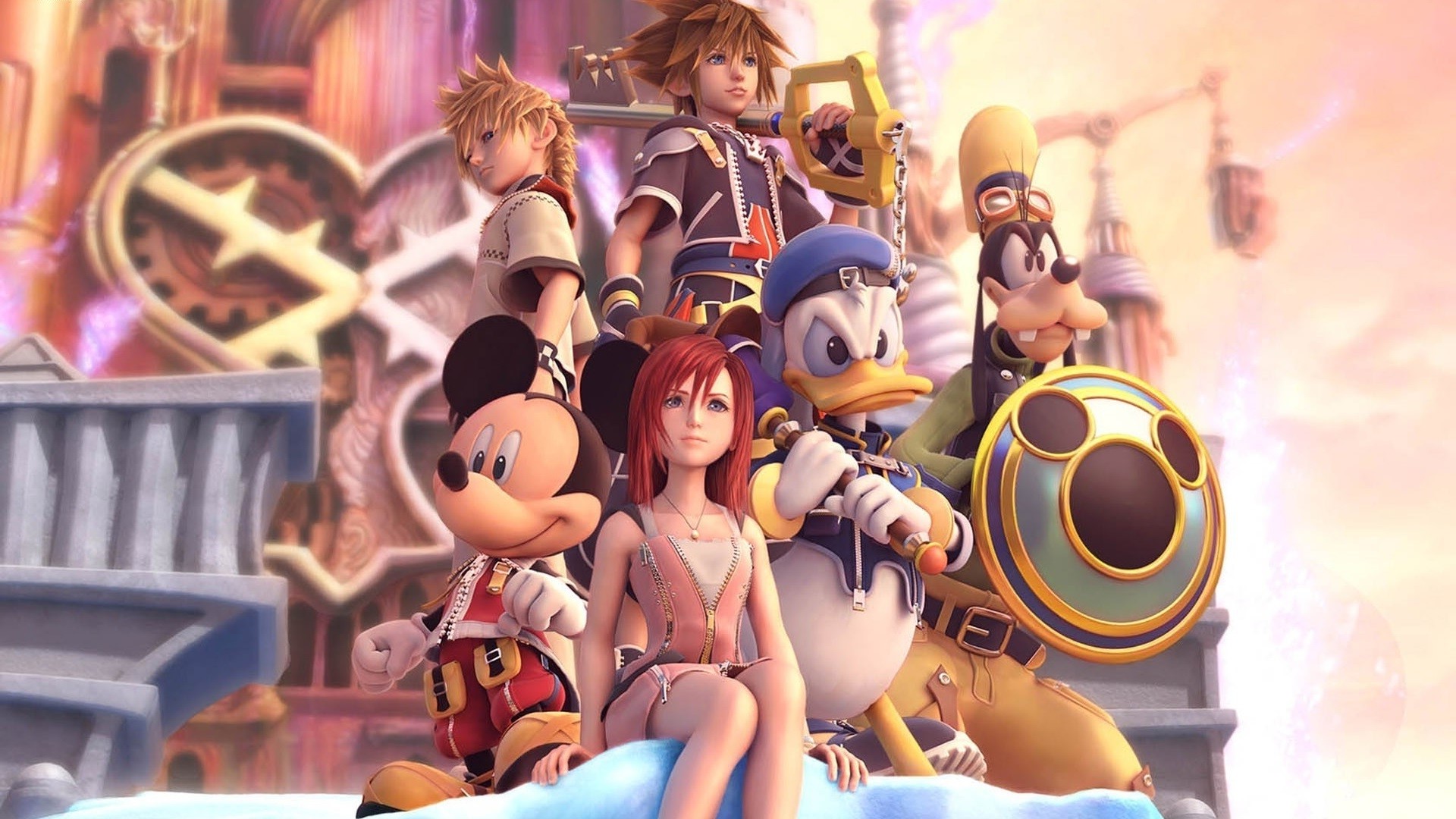In this Kingdom Hearts case study we’re discovering the shortcomings of the series’ English (North-American) localization!
Kingdom Hearts is a Square Enix cornerstone. The first game of the notorious action RPG saga was released in 2002 for PlayStation 2, and it immediately gained massive success, which prompted the development of a dozen prequels, sequels and spin-offs.
A not-so-good localization?
The Kingdom Hearts series never ceases to arouse a fond nostalgia within fans, although many lament its convoluted and unnecessarily complicated plot. Another reason for controversy is the way the characters interact with each other, which is deemed quite awkward and wooden.
Now, a certain question comes to mind: do these issues also exist in the original Japanese version, or are they an English version exclusive?
To be fair, many western fans claim that the series’ English localization is “faulty”. This can cause significant problems, since a poor translation could not only not convey the creator’s intended message, but also distort some of the characters’ personality and motivation.
Apart from that, it is thought that the mistakes in the English translation created a few plot holes.
Some of the issues with the English version
Sora the “Keyblade master”
A localization error that’s commonly pointed out concerns Sora’s status as a “Keyblade master”. This title suggests Sora’s exclusive role as the wielder of the weapon, but it’s really not like that. In fact, throughout the saga multiple characters are able to use the Keyblade.
In the Japanese version, Sora is simply called the “Keyblade hero”, so there’s no implication that makes him the one and only chosen one. Anyone can wield the Keyblade, there’s no sole, true master, meaning a “main” hero that stands above the others.
Kairi’s missed development

Kairi’s character is the one that suffered the most in the North-American localization by undergoing a flattening that many western fans found almost offensive.
Throughout the series, Kairi’s fear of not being strong enough to protect her friends is a crucial leitmotiv for her character. This ends up kickstarting her character development arc, in which she begins a training journey with the Keyblade in order to become stronger. But in the English version a lot of her dialogue was changed, and for the worst.
The most recent example is from the new title Kingdom Hearts: Melody of Memory. In the original, while talking to Xehanort, Kairi claims that Sora’s disappearance was partly due to the fact that she wasn’t strong enough to avoid it. But in English she entirely places the fault on Xehanort, with no reference to her own weakness.
Then, in a scene from Kingdom Hearts 3, while Kairi and Sora are returning to the Keyblade Graveyard, we can find another insult to Kairi. In Japanese, Sora tells Kairi a sentence that can be translated to “as I thought, you’re strong, Kairi”. But in English the phrase becomes “I feel strong with you”, which shifts the focus to Sora and also diminishes Kairi’s personal growth.
Beyond these examples, Kairi’s ongoing internal conflict and her determination to improve are often overlooked aspects in the North-American localization.
Conclusions
Kingdom Hearts is and will always be a beloved saga, despite the changes to the English dialogues leaving a bad taste in someone’s mouth. The thing is that video game localization is never an easy process, and it is usually necessary to compromise.





